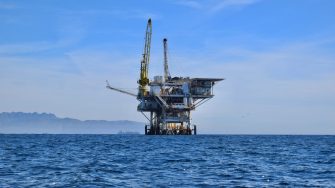
What is GEGS?
Geoenergy and Geostorage Engineering is an innovative field that focuses on sustainable practices in the extraction and management of subsurface resources such as carbon dioxide storage, hydrogen storage, and energy resources extraction (oil & gas, geothermal) from the earth.
This degree reflects the evolving needs of the energy resources sector, building on the integrated foundation of reservoir engineering, drilling engineering, rock mechanics, and environmental science. It equips students with the knowledge and skillset necessary to navigate and innovate decarbonisation technology to achieve net zero emission economy.
Study areas
- Energy Resource Geology & Geophysics
- Geomechanics
- Formation Characterisation
- Subsurface Data Science
- Drilling Engineering
- Reservoir Engineering
- Decommissioning and Sustainability
- Hydrogen Geostorage
- CO2 sequestration
- Geothermal Engineering
Career outcomes
Contribute to a net-zero future by addressing critical challenges related to subsurface energy extraction. You can work in areas such as minerals and energy resources exploration, drilling, sustainability and environmental consulting, petroleum engineering, project management, and management consulting in the mining or energy resources sectors. Provisional accreditation by Engineers Australia will be sought for this degree.
